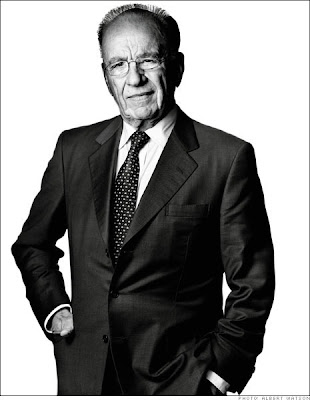
Friday, September 10, 2010
Tuesday, May 18, 2010
Synthetic CDOs
Before getting into synthetic CDOs, it’s probably best to explain normal CDOs. CDO, which stands for Collateralized Debt Obligation is an investment vehicle composed of bonds which are in turn composed of subprime mortgages. Let’s 10 million Joe Blows want mortgages to buy themselves and their Joe Blow families a house to watch TV in. Typically, they would find themselves eagerly welcomed by local firms that specialize not only in originating mortgages to Joe Blow, but turning around and selling that debt and its interest payments to someone else. At ground zero, things are already skewed; the originator isn’t really concerned whether Joe Blow can pay up, only making it look like he can in order to sell it off.
As one man’s debt in another man’s investment (although in the case of subprime borrowers, the adage seems tentative; it’s more like this particular kind of man’s debt is the stupidest place another man can put his money) the mortgage is quickly sold off to a more sophisticated institution. The originator pockets the difference and starts looking for another J.B. The financial firm now holding the mortgage adds it the millions of other subprime mortgages it owns and starts cutting them up, rearranging and assembling them into bonds for sale. As will remain constant, the coupon payments on these bonds are coming out Joe Blow’s pay check, if he has a job.
Next, the firm will either sell off its new patchwork bonds to another, even slicker financial institution for yet another, more complex layer of remodelling, or if they’re sophisticated enough do it themselves. Regardless, the bonds are next assembled with thousands of other subprime bonds for another round of cutting up and rearranging. Frankenstein rises and the CDO is born coupon payments and risk ratings based on mind boggling complexity and opaqueness Ready for sale, its pitched to institutional investors around the world, typically finding its home in pension funds, hedge funds and mutual funds hungry for safe investments with high returns.
What’s the point of this elaborate Wall Street paper mache project? Ideally, by combining millions of mortgages into different tranches and arrangements, the risk of the underlying assets is mitigated. Until 2007, it was thought that financial engineering was now able to turn Joe Blow, who was otherwise inaccessible and too risky for institutional investors into a AAA rated asset fit for the world.
Obviously it work didn’t quite work out. The CDO machine was a dysfunction circle jerk so systemically flawed it led to a near financial meltdown and one of the worst recessions in history. There’s a lot of different reason and factors as to why it all happened; why so many loans were given to so many Joe Blows only to have them mainlined into a addicted global banking system. But remember, we’re trying to get to synthetic CDOs, not explain the origins of the crash. Plus, synthetic CDOs are best part of the story, which is continued tomorrow.
Synthetic CDOs arose during the very peak of the subprime mortgage market, when things were getting too good to be true. With more and more institutional investors wanting CDOs in their portfolios, the companies on the front line, the ones finding Joe Blows and handing them money, where miraculously having trouble finding Joe Blows. Wall Street had used up its subprime fuel.
They’d find more in the most unlikely of places.
Not everyone was mainlining Subprime Crank. Since the mid 2000s, a variety of prescient investors had seen the light and were busy figuring out how to as make as much money as possible off its inevitable collapse. The instrument they found was a Credit Default Swap or CDS.
A CDS is essentially an insurance agreement on a debt repayment. If I loan $1 million to a Greek entrepreneur, I could buy a CDS for a small monthly of someone like AIG and if the loan goes bust, AIG covers it. In finance, everything can be securitized and traded, so buyers of Credit Default Swaps don’t have to actually own the underlying assets the instrument insures. If and when the mortgage market collapsed, those short with CDSs would make a fortune selling them off.
However, they had to wait for the crash to come, and continuously make monthly payments while they did. Enter irony and the synthetic CDO. The quicker Wall Street ran out of Joe Blows to fill institutional investors demand, the more speculators began shorting the market; but as the payments from Credit Default Swaps on CDOs grew to increasingly high numbers, Wall Street saw them not as a warning to stop selling dangerous mortgage debt but as solution to sell more securities related to the subprime market. Wall Street started assembling the revenue streams from the millions of payments from credit default swaps into packages that mirrored the coupon payments from subprime CDOS. Ignorant investors who couldn’t find a CDO to invest in could now get the same high payments from a synthetic CDO composed not of mortgages but of insurance payments against mortgages. They didn’t even need to put money down to collect the payments, all they had to do was agree to back the real CDO in the event of a default . From 2005 to 2007 over $108 billion dollars worth of synthetic CDOs were issued.
There you have it, financial engineering at its best/worst.
May 6th Dive
But exactly what cause the ‘Flash Crash’ is still unknown. While initial rumours claimed that some fat fingered trader mistakenly put through a sell order for 16 billion shares of Procter & Gamble instead of 16 million, experts are slowly figuring out the plunge was caused by a variety of intersecting factors. Firstly, traders were very skittish that week. Like freshly beaten dogs, they hadn’t yet recovered from the pummelling they’d taken on the Greek debt fiasco and impending UK election. In an atmosphere like this, a large trade in the stock-futures market could have easily contributed to the sell-off. Watchdogs are also fingering the rise of upstart electronic-trading platforms, which now account for almost 75% of deals done on the NASDAQ as part of the problem. It’s tough for regulations to keep up with the leaps and bounds technology takes. Before the company that built the first Terminators started making stock exchange systems, exchanges like the NYSE could stem irrational sell offs like May 6th by shutting down their electronic-trading platforms and trading manually on the floor. With so many exchanges now operating digitally and independently on platforms using god knows what kind of mathematics and engineering, manual, synced trading isn’t’ really an option. The Securities and Exchange Commission is now contemplating stepping in. Look for them to enforce a more effective and co-ordinated system that allows them to force exchanges market-wide to either slow or stop during periods of extreme decline. Definitely for the better.
Tuesday, May 11, 2010
Bail Out Band Aid, Europe is Still Bleeding
There is an understanding that while the 1.1 trillion USD plan surpassed expectations, it is still only a safety net; a reassuring agreement designed to bust up speculators and negative feedback loops. At the end of the day, lending to already over-borrowed ‘Club Med’ economies doesn’t get to the fundamentals of Europe’s problem.
The EU solution reached Sunday night was just the easy part. Agreeing to back members in a default may be a political solution to abstract financial pressures like short sellers, speculators and bond traders.
If you’re unfamiliar with negative feedback loops and the kind of situation Sunday’s package was designed to stop, here it is in very simplified form: During the recession, analysts began to view Greece as a more risky borrower because of its high debt levels and stagnant economy. Interest rates were subsequently raised. Because countries often pay existing debt off with new debt, it became increasingly expensive for Athens to service its obligations. With little cash flow, Greece suddenly looked like an even riskier investment for lenders then it did before, and interest rates went up again. Repeat the self-enforcing cycle a few times; compound it with short selling sharks pushing for disaster and nervous, herd like institutional funds, and you’ve got the sovereign version of Bear Stearns. However, if creditors know that a stable body like the EU is backing their assets (which it now is), runs are much less likely.
But again, that doesn’t solve Europe’s real problem and as a result, the Euro and its indexes are down while gold continues to soar. Many of the union’s members have used monetary unity to borrow more than they could ever hope to pay back. They’ve been able to get away with it because Euro Zone regulators have lacked in monitoring the fiscal sloppiness of its members. Sunday was a big, much needed band-aid, but stocks won’t really recover until the underlying wound is fixed.
It does look like reform is on the way, and that Europe is eventually going to come out of all this for the better; with a much more efficient and disciplined fiscal policy and protection from this ever happening again. A firm hand will be needed though. Forcing Greece to cut its deficit from 14% of GDP to 3% while simultaneously fostering a lean and productive economy will be the union’s first step. If it succeeds, look for faith in Europe to be restored. Until
Friday, May 7, 2010
The Glue that Holds the EU
From its onset, the Euro Zone was fundamentally a political creation driven by motives other than perfect monetary policy. Laymen citizens from Europe’s smaller countries were enticed by something bigger then themselves and pressured their elected officials to make it happen. On the other side of that table sat ambitious European Union policy makers giddy to lead grandiose, history making integration. It was to be the re-emergence of Europe as a global power, this time united and stronger than ever. It was this kind of hubris that led European leaders to trump economic realities with political considerations.
When the 11 nations (Greece was excluded) locked their currencies in January 1999 in preparation for the Euro, it was already clear rules were going to be bent.
Admittance conditions stipulating budget deficits not exceed 3% of GDP and that debt must remain under 60% of GDP were not met by members Italy or Belgium. When Greece with its massive debt joined in 2001, a year before the introduction of euro notes, its path was cleared for admission by the precedent set my Italy and Belgium and fudged data.
Once through the doors, Greek hit the Euro’s low interest borrowing buffet table slathering taziki sauce of everything, vamping up spending and debt instead of cutting deficits and liberalizing the economy. By the time the recession hit, Greek’s balance sheet was bloated with debt, the economy was floundering and nation was set to tank. Unfortunately Greece’s situation isn’t unique and is endemic of how much the Euro Zone was expanded. The are now major worries the crisis will spread to Spain, Portugal and Italy and infect the continent’s monetary and banking system. How did this happen? Politics and emotions surpassed numbers and economics. A good lesson for any investor.
Britain Could Use another Churchill Right Now, or Even a Thatcher
Despite the fact his reigning Labour Party now holds 47 seats less than the Conservatives; Prime Minister Gordon Brown has made it clear he won’t be stepping down without a fight. His opponent is David Cameron, whose Tories now hold the most seats at 306 and are negotiating a coalition with the Liberal Democrats.
While everyone lost in this election, the real loser is the British economy. Britain has never been in a worse position to have its partisan captains squabble over the wheel rather than actually get things done. Britain’s debt is at a rank 11% of its GDP (the largest of the G7), unemployment is at a fifteen year high, the country suffered one of the worst recessions in the western world, will have an estimated deficit of $255 billion this year (the highest level since World War II) and is recovering from the financial crisis much slower than the US, Canada and swaths of Europe. Amidst what looks like dry rot crossed with a financial hurricane, the country needs a firm government with the ability to cut budgets, run a lean, efficient economy and reign in its finances. The call is Churchillian and doesn’t seem likely in country not at all used to coalitions.
Greece has shown the world that the Euro Zone is flawed and dysfunctional. It made everyone aware of what kind of tanking markets will take on the subject of sovereign debt default. We’re in a period where countries that once seemed rock solid are crumbling. Make no mistake; Britain’s stagnant economy and enormous debt levels leave the Empire in the same leaky boat as Greece. If something isn’t done by those that govern, more crashes are on the way and another bailout in Europe might be necessary.
The market has reacted as predicted. The pound fell over 2.4% against the dollar, 10-year gilts (bonds issued by the British government) are up by 7 basis points to 3.87 percent and analysts are maintaining a negative outlook on the pound. The bright side is that Moody’s Investors Service stated that election results are not a direct threat to the nation’s AAA rating. Look for slight gains when David Cameron and Liberal Democrat leader Nick Clegg announce their coalition plans Friday afternoon.
Thursday, May 6, 2010
Greek Austerity Package
Public sector pay frozen till 2014
Public sector salary bonuses - equivalent to two months' extra pay - scrapped for higher earners and capped for others
Public sector allowances cut by 20%
State pensions frozen or cut; contribution period up from 37 to 40 years
Average retirement age up from 61 to 63; early retirement restricted
VAT increased from 19% to 23%
Taxes on fuel, alcohol and tobacco up 10%
One-off tax on profits, plus new gambling, property and green taxes
Even Oil Slick’s have Bright Sides
There’s a lot of variables at this point, including whether engineers will successfully cap the well, how much environmental damage this debacle’s going to cause and what kind of lawsuits BP’s facing. Everything’s still a veritable mess and it’s too soon to know exactly what kind of hits BP’s market cap is going to take.
However, looking at stock performance in previous oil disasters does give you some perspective. The most expensive oil spill in history was the Exxon Valdez tanker in 1989. The tab for cleaning up one of the most devastating human-caused environmental disasters in history ran to about $7 billion. While liberal estimates put the cost of cleaning up the Gulf of Mexico at around $15 billion, BP has already had double that that wiped off its market value. And while the energy company doesn’t have insurance for spills, BP won’t be on the hook by itself. Transocean, Halliburton and Cameron International all had roles in the accident and are all liable.
BP also has ample liquidity and a strong balance sheet to handle a crisis of this magnitude. According to FactSet data, the energy company has $70 billion in current assets, including cash, receivables and inventory, to set against $62 billion in short-term liabilities and $24 billion in long-term debt. Income last year was $21 billion on sales of $241 billion.
Big, media frenzy disasters tend to make for exaggerated stock movements that don’t necessarily reflect balance sheets. Given BP’s figures, shares look like a deal no matter kind of cleanup bill they flip. And the irony is, if the Gulf spill leads to higher global oil prices, that’ll benefit BP’s stock as well.
Thursday, April 15, 2010
Why Palm Failed
No, it's not the software developers and engineers who are to blame, it's those who brought the phone to market. These people, worse then fumbling the ball, caught the hike and blindly lobbed it back into the mess surrounding the line of scrimmage. The spiral that ended with Palm's flop was one of continuously horrible marketing decisions, badly implemented partnerships with network providers and a disorientated branding strategy.
For starters, the release of the Palm Pre was immediately dwarfed a week later by Apple's announcement that it would be releasing its iPhone 3GS by the end of the month. Palm then chose to initially sell the Pre exclusively on American's third largest provider, AT@T, in exchange for an investment in advertising the phone. However, the ensuing marketing campaign ended up focusing more on AT&T's own branding then it did on the Pre. When Palm finally decided to move the Pre over to Verizon, America's largest provider, the company was told it would have to wait until January. This was highly problematic because come Christmas the Verizon customer market would be saturated with the Motorola Droid, a very slick and powerful smartphone released in December and backed by a $100 million holiday advertising campaign.
Palm's next big blunder involved its second phone, the Pixi, a less powerful and cheaper smartphone then the Pre. While the phone had strong reviews, the initial marketing approach took on a slightly feminine slant that quickly left the phone with an image of exclusivity for women. With half of its buyer base alienated, sales never took off.
So come April, Palm found itself with a blown marketing budget, a stock price 70% less then its high and most of its products collecting dust on shelves across the county. The only bright side seems to be that its For Sale sign will be hung and managed by Goldman Sachs. Though even that is looking less and less like good news.
Tuesday, April 13, 2010
Why You Should Buy Aol Shares

Investing your money in AOL sounds about as shrewd and anachronistic as buying a VCR. This is a misconception. It's been just over five months since AOL's spin-off from the disastrous 2001 merger with Time Warner and the company is being rebuilt to thrive in the changing digital landscape. Led by its CEO Tim Armstrong, a former president of Google's Americas operations, AOL is now an advertising and content company with high ambitions.
The revamped company is hoping to thrive by tackling a problem facing advertisers and publishers alike: how to create real money, value and effect through the internet. The widespread problem stems from the fact most companies try to squeeze and reshape what worked offline into something that works online. This is wrong. Instead, they should be embracing the internet as an opportunity that necessitates completely new forms of content, marketing and advertising relationships. The kinds of things we've never seen before, not sites that are clearly awkward transpositions of paper to screen but things built specifically for today's and tomorrow's internet.
While AOL is playing its cards close, the company has made it clear it's working on doing just that. Unlike search and its obvious giants, there really isn't anyone using global scale to dominate the dynamic and emotional forms of online advertising that the web demands. This is because a lot of the material on Web 3.0 will require either intense, line blurring cooperation between content publishers and advertisers alike or companies like Youtube, Facebook or Hulu who have enough vision, clout and ingenuity to hammer out new models with their own brand of revenue streams. Alone, The New York Times can't revamp advertising just as Saatchi & Saatchi can't jump start new content. The problem has to be solved from both sides in the middle, together. And it will be, eventually. But AOL, with big, versatile assets in both advertising and content has the resources and diversity to create everything internally and beat its competitors to the punch.
If AOL can get that right and use its scale to dominate its competitors, AOL will be a soaring global brand once again and a stock you'll be happy you bought now.
Sunday, January 31, 2010
Friday, January 29, 2010
The Cadbury Takeover
The acquisition has grabbed a great deal of attention and has lead many Brits to ponder, in a helpless, pub stool complaining kind of way just what the ramifications of their nation's inviting policy towards foreign takeovers might be.
Since the early 1980s, when Margret Thatcher removed huge swaths of legal barriers to foreign ownership of British companies, the list of businesses the United Kingdom can call its own is dwindling. The Empire no longer houses a single major auto maker and most of London's investment banks are foreign owned. England's steel, chemical, water and electricity industries are also foreign owned and most of the nation's ports and airports are controlled from abroad.
Unlike the United Kingdom, the government's of most European countries tend to block foreign takeovers as a protectionist measure for the job security of their citizens. In the United States, where an emphasis on the efficiency of free markets reigns, the government barres whole sectors of the economy from foreign takeovers. Even in capital hungry countries like China and India, strict regulations are put on investment and ownership from abroad.
The irony is if Britain, a nation clinging to its heyday more desperately than any country in the world, doesn't fix Thatcher's mistake, the Empire will be sold piece by piece to countries it remembers well.
Thursday, January 28, 2010
J.D. Salinger's Afterword
Tuesday, January 19, 2010
Tuesday, January 12, 2010
The Wasted Words of Hitchens

For the ever more lost and meaningless Vanity Fair, Christopher Hitchens asks what has happened to Gore Vidal. Unfortunately, Mr. Hitchens doesn't seem to be interested in answers anymore and the entire article is nothing more than an elegant hissy fit, worth reading only to get a sense of how malicious, fanatical and good at insulting people the author has become.
There is an answer to Hitchens' impolite question, and it's simple, obvious and completely excluded from the article: Gore Vidal has gotten older, he's almost 85 years old and facing octogenarian mental deterioration while trying to write about a world where people in their 50s (Hitchens is 60) are out of the loop. Comparatively, to frame and assess the abilities of great athletes who compete long past their past their prime (Re: Michael Jordan post second-retirement) with no inclusion of the effects of age would be as shallow, stupid and deprived of judgment as what Hitchens does here.
What happened to pre 9/11 Christopher Hitchens is a much more interesting question.
Tuesday, December 15, 2009
Cheap Feed
Friday, November 20, 2009
Wednesday, November 18, 2009
Hulu and its CEO have it Right.

Under the steward of its buzzword spouting CEO, Jason Kilar (a refreshing executive of the 'new media' industry), Hulu will be a successful and lucrative (a few years away) 'content aggregate', advertising platform(?) and business model($). Buzzwords galore. Read up at Fast Company and catch Mr. Kilar on Charlie Rose.
Monday, November 16, 2009
Steve Jobs and Apple Successfully Patent a Not-So-Cool Advertising Approach
Sunday, November 15, 2009
At Bloomberg, Modest Strategy to Rule the World
Sunday, October 25, 2009
Sunday, October 18, 2009
Motorola's Droid to Rival IPhone on Verizon?
We'll see (read up at TechCrunch). The same was said about the Palm Pre. Regardless, the commercial is clever.
Clouds Ahead for Microsoft
Tuesday, October 6, 2009
Monday, October 5, 2009
Boris Johnson Vs. David Cameron

The Daily Beast's Matthew D'Ancona explains why the leader of Britain's Conservative Party isn't as chummy with London's conservative mayor as he used to be. Root for Boris in this rivalry.
Sunday, October 4, 2009
Saturday, October 3, 2009
Thursday, October 1, 2009
Rupert Murdoch: "The internet is nothing more than a series of tubes"

Like most 78 years olds, the internet is a puzzling thing for News Corp's CEO and founder Rupert Murdoch. Despite everything he's done in the media business for the past half century, he can't appreciate or immerse himself in the changing dynamics of the internet the way people who didn't grow up in the era of Citizen Kane can. Vanity Fair's Michael Wolff does a great job of explaining why. Make no mistake though, News corp will thrive under its heir apparent; Murdoch's technocrat son, James Murdoch.
Friday, September 11, 2009
Tina Brown on Anna Wintour's (Ostensible) Turn Around

Tina Brown, founder and editor of The Daily Beast writes a short quipping appraisal piece on American Vogue's editor Anna Wintour's recent 'successes'. In light of her precarious disposition of being born in the 1940s and managing a magazine that's geared to the vanity of youth and bleeding money in a medium that's undergoing unprecedented technological and distribution revolutions, I'd say that neither letting people film her at work nor organizing a night where opportunists (a few of them consumers) are attracted to stores for autographs, free booze and food are successes. Like so many of the people over sixty who work for Vogue, her fate is sealed.
Friday, July 31, 2009
Monday, July 27, 2009
Say Goodbye to the Kindle and Buy Apple Shares
Jason Scharwz of Seeking Alpha puts the nail in the Kindle's coffin and explains why Apple's next 'revolutionary' product will not only be the most sought after method of interacting with information and media but will spawn standards and business models across the web.
Tuesday, July 21, 2009
David Lynch's Interview Project
Fitzgerald said there are no second acts in American lives. In his free online Interview Project, David Lynch shows us the proverb certainly rings true for down and out middle-aged citizens of America's Midwest. Spanning 20,000 miles and 121 interviews, it's mostly red state America, looking destititue, lost and very human.
Friday, July 17, 2009
Artist Dash Snow Dead, Heroin Overdoes, 27

Like most of the 27 club, something burned brighter. His lifestlye was his art. Read a bit about him in a New York Magazine profile from 2007. As any good artist is worth more dead, expect a torrent of flashy magazine profiles by the end of the month.
Thursday, July 9, 2009
Canadian Company Pays $1,680,300 for Lunch with Mr. Buffett
Monday, July 6, 2009
David Foster Wallace's Kenyon Commencement Address to the Graduating Class of 2005

Read David Foster's 2005 Commencement Speech at Kenyon College, Ohio as he narrates how to say conscious and alive during the banality of day in and day out life. His tagic suicide in September of 2008 makes him no less credible.
Roger Federer as Religious Experience

In light of Mr. Federer's historic 15th Grand Slam victory, a beautifully written, perceptive and intellectually curious article on the tennis maestro by the late author David Foster Wallace is a perfect read, despite being written in 2006.
Friday, June 12, 2009
British National Party
With England's rotten economy worsted only by its sleazy parliament, the fascists and racists are getting elected out of the woodwork. Britain should be ashamed.
Thursday, June 4, 2009
Wednesday, June 3, 2009
Boris on the Heff

In the most recent of his Telegraph columns, Mayor of London Boris Johnson (left), a verbose, affable clown with Churchillian ambitions, makes a brilliant call for journalist Simon Heffer to save British politics.
Heffer (below), the staunchly conservative writer for the Telegraph is a trenchant and esteemed contrarian who's prominent for delivering lines like 'The reason we have an underclass is because we have decided to pay for one' .

Another Loss for Prime Minister Gordon Brown


With all the stinky huff surrounding these British trolls (apologies Ms. Boyle), it's truly special they look like twin siblings.
It's time for Gordon Brown to abdicate New Labour's throne. As Britain's leadership crisis kicks into high gear, the Prime Minister has hit rock bottom. Let's hope he doesn't get the drill out.
Thursday, May 14, 2009
Montreal to Get Shared Bike System
Monday, May 11, 2009
Thursday, April 30, 2009
Tuesday, April 14, 2009
Collision: Christopher Hitchens VS Douglas Wilson














